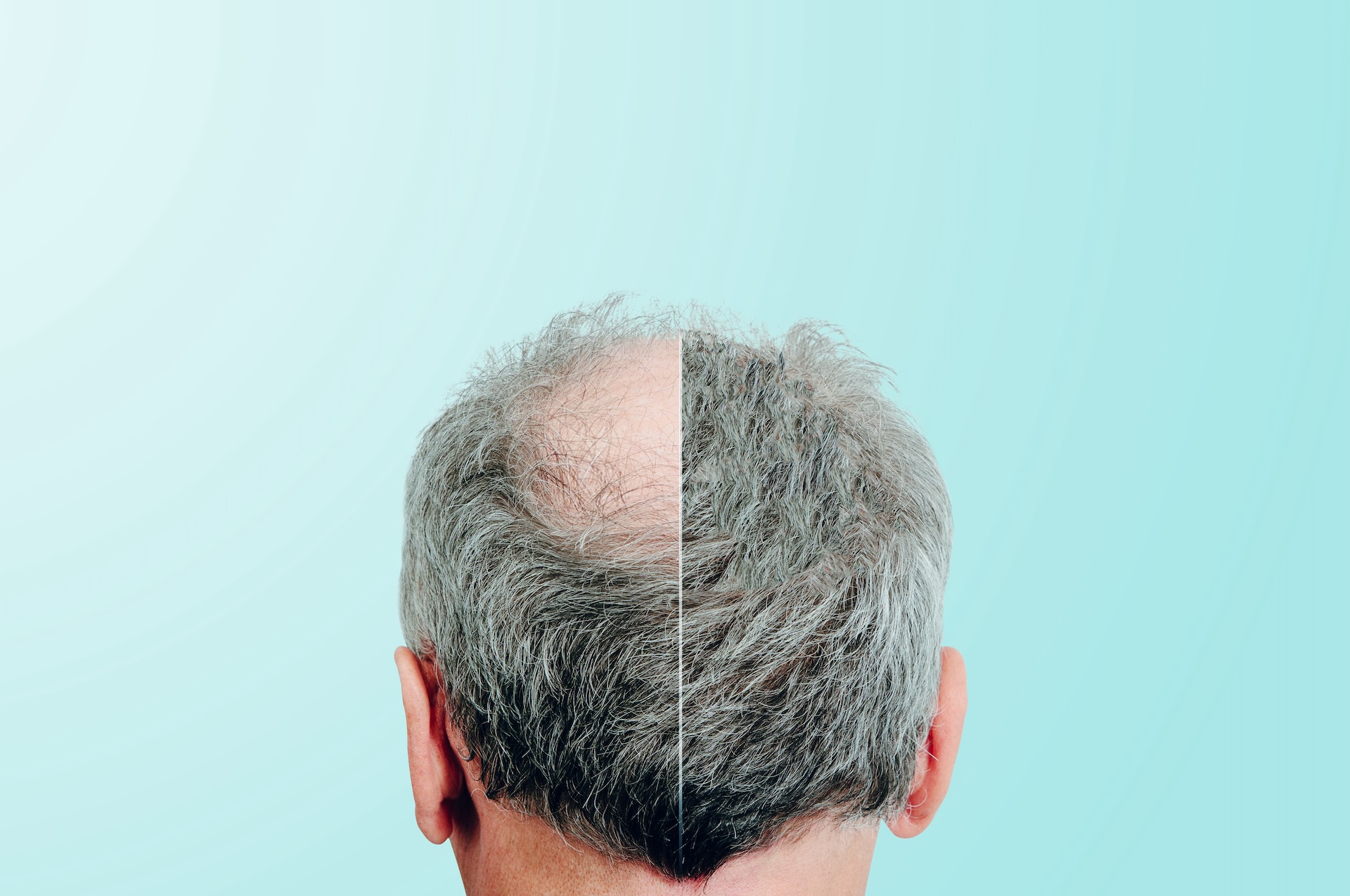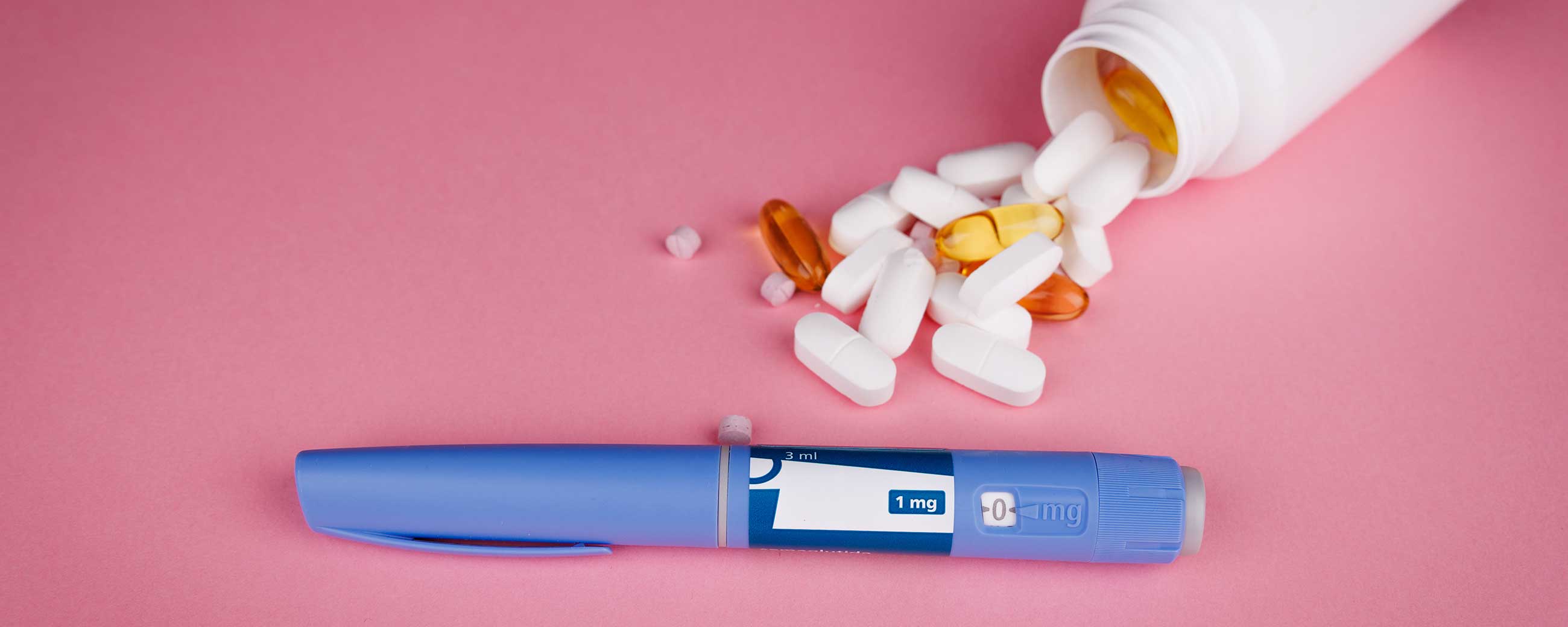
Do Ozempic, Mounjaro & Other GLP-1s Cause Hair Loss?

When Virta member Tiffinnie learned she had prediabetes, she at first took a kitchen-sink approach to reversing it. She had gastric bypass surgery and started taking a host of pills and supplements, including biotin, because her hair was falling out. Tiffinnie didn’t lose enough weight until she began working with a Virta health coach, who helped her find recipes for nourishing meals she enjoyed eating — and cooking.
Did her prediabetes trigger the shedding? A new wave of GLP-1 medications and the drumbeat of reported side effects like GI discomfort and hair loss is making some people wonder about the possible link between weight and hair loss.
Anecdotally, people report noticing thinner hair when on Ozempic. But does Ozempic cause hair loss, or is this a coincidence? Does diabetes cause hair loss, for that matter? Perhaps it’s neither? We combed through insights on diabetes, hair loss, and the timeline for regrowth.
Do Ozempic and Mounjaro cause hair loss?
At this time, it’s unlikely that injectable GLP-1s, including Ozempic, Wegovy, Zepbound, and Mounjaro, directly cause hair changes. However, the rapid weight loss and lack of adequate nutrient intake you can experience on GLP-1s can trigger temporary hair loss.
The link between medications for diabetes and hair loss
People who have diabetes may take either a GLP-1 or a more traditional diabetes medication like Metformin for treatment. However, it is unlikely that taking a medication for diabetes will result in hair loss, with hair loss being reported as a possible side effect in a clinical trial for semaglutide (Wegovy, Ozempic) by only 3% of respondents.
Does metformin cause hair loss? While the drug is different than Ozempic and other GLP-1s, research doesn’t point to a clear, direct link between metformin and hair loss. Only rapid weight loss causes hair loss, which metformin does not do.
Why is my hair falling out when I lose weight?
Weight loss can disrupt the hair growth cycle. A 2021 review pointed to sudden weight loss as a common trigger for telogen effluvium, the clinical term for rapid hair loss. In addition, GLP-1s like Ozempic work by slowing the stomach from emptying, so you eat less. This can lead to potentially not getting enough nutrients like zinc, protein, iron, or calories, which can also trigger hair change. Some people taking metformin might also experience vitamin B12 deficiencies, which can also cause hair loss.
Is the hair loss or hair shedding permanent?
The hair loss or shedding indirectly linked with GLP-1 drugs like Ozempic and Mounjaro is likely a short-term issue that not everyone will experience.
A quick primer on the hair growth cycle:
- Growth phase. The hair follicles grow hair.
- Rest phase. The hair follicles stop growing, and you shed.
- Repeat.
With telogen effluvium, your hair stays in the rest cycle, typically for a few months. During this time, you shed without the growth. Then it should go back to normal once weight stabilizes, and as long as the root cause (like nutrient or vitamin deficiency) is addressed.
Tips for regrowing hair after taking Ozempic or Mounjaro
Hair is personal, so it’s understandable you want to speed up the growth process. While there’s no one-size-cures-all, these steps could help:
- Speak with your doctor. Rule out any other potential causes of hair loss, like a thyroid problem or other medications you take.
- Eat nourishing meals. Since vitamin deficiencies can trigger hair loss, consuming a balanced diet full of iron, protein, and zinc is useful. A Virta health coach can help you find foods you love.
- Style gently. Overstyling with heat can damage hair more. If you do want to heat-style, use a protectant spray first. When you comb, go gently, and use a soft-bristle brush. It’ll help your hair look healthier and smoother.
- Manage stress. Stress can also trigger telogen effluvium, and people with diabetes are more likely to experience anxiety. A therapist can help you cope.
- Experiment. Always tempted to try a shorter ‘do? Now could be the time.
The side effects of a GLP-1 will go away If you stop taking it. (However, the lower blood sugar and weight loss could, too.)
The Takeaway
Does Ozempic cause hair loss? Not directly. It was one of the rarer side effects reported in trials for semaglutide (Ozempic) and tirzepatide. More likely, if you achieve rapid, significant weight loss on these drugs, you might temporarily disrupt the hair growth cycle. This should be temporary. Eating nourishing foods, brushing gently, avoiding heat styling, and experimenting with new styles are ways to manage hair thinning from weight loss. Diabetes can also put you at a higher risk for hair loss if you experience rapid, significant weight loss. Virta Health may be able to help if you are diagnosed with type 2 diabetes and want to live a lifestyle that lets you feel good. When you make healthy lifestyle changes in a medical setting with supportive resources like 1:1 virtual coaching, you can take control of your health and feel like your best self. See if you’re eligible for Virta Health here.
This blog is intended for informational purposes only and is not meant to be a substitute for professional medical advice, diagnosis, or treatment. Always seek the advice of your physician or other qualified health provider with any questions you may have regarding a medical condition or any advice relating to your health. View full disclaimer
Are you living with type 2 diabetes, prediabetes, or unwanted weight?








